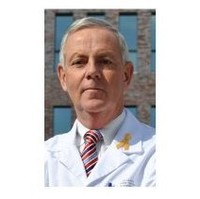Combination Effect of The Extract of Avocado Leaf and Seed (Persea americana) on Level of Total Cholesterol, LDL, and HDL in Mice (Mus musculus) with Hypercholesterolemia
Downloads
Introduction: Traditional and herbal medicine are two of the primary treatments in a developing country. Both avocado leaf extract and avocado seed extract (Persea americana) have been proven to have an antihyperlipidemic effect in experimental animals. This study was conducted to analyze the effect of avocado leaf and seed extract in a combination form on total cholesterol, LDL, and HDL of hypercholesterolemia mice induced by high fat diet and duck egg yolk.
Methods: The sample unit of this study consisted of 25 mice (Mus musculus) and divided into 5 groups: KO1 (control), KO2 (hypercholesterolemia group), KO3 (1st treatment group), KO4 (2nd treatment group), and KO5 (3rd treatment group). The induction phase was done for 35 days, whilst the treatment phase was done for 28 days. All data were analyzed using t test and one-way ANOVA.
Results: Administration of the combination including avocado leaf and seed extract (CALSE) in all treatment group proved to decrease total cholesterol and LDL level in mice although it was not statistically significant (p=0,420; p=0,882). Meanwhile, CALSE had a different effect on HDL KO3 level with HDL KO4 and KO5 level, in which HDL KO3 level tended to decrease and HDL KO4 and KO5 level tended to increase.
Conclusion: In conclusion, CALSE has the potential to act as an antihyperlipidemic agent which derive from flavonoid and saponin. The potential efficacy might be achieved in a combination rather than in an individual form.
Mahady GB. Global Harmonization of Herbal Health Claims. The Journal of Nutrition. 2001; 131: 1120S-3S.
Yasir M, Das S and Kharya M. The Phytochemical and Pharmacological Profile of Persea Americana Mill. Pharmacognosy Reviews. 2010; 4: 77.
Arukwe U, Amadi B, Duru M, et al. Chemical Composition of Persea Americana Leaf, Fruit and Seed. IJRRAS. 2012; 11: 346-9.
Kolawole O, Kolawole S, Ayankunle A and Olaniran I. Methanol leaf extract of Persea Americana Protects Rats Against Cholesterol-Induced Hyperlipidemia. British Journal of Medicine and Medical Research. 2012; 2: 235-42.
Pahua-Ramos ME, Ortiz-Moreno A, Chamorro-Cevallos G, et al. Hypolipidemic Effect of Avocado (Persea americana Mill) Seed in a Hypercholesterolemic Mouse Model. Plant Foods for Human Nutrition. 2012; 67: 10-6.
Chávez-Santoscoy RA, Gutiérrez-Uribe JA and Serna-Saldívar SO. Effect of flavonoids and Saponins Extracted from Black Bean (Phaseolus vulgaris L.) Seed Coats as Cholesterol Micelle Disruptors. Plant Foods for Human Nutrition. 2013; 68: 416-23.
Prince PSM and Kannan N. Protective Effect of Rutin on Lipids, Lipoproteins, Lipid Metabolizing Enzymes and Glycoproteins in Streptozotocin Induced Diabetic Rats. Journal of Pharmacy and Pharmacology. 2006; 58: 1373-83.
Gnoni G, Paglialonga G and Siculella L. Quercetin Inhibits Fatty Acid and Triacylglycerol Synthesis in Rat Liver Cells. European Journal of Clinical Investigation. 2009; 39: 761-8.
Marrelli M, Conforti F, Araniti F and Statti G. Effects of Saponins on Lipid Metabolism: A Review of Potential Health Benefits in the Treatment of Obesity. Molecules. 2016; 21: 1404.
Ishihara A, Ito A, Sakai K, Watanabe S, Kobayashi T and Okuyama H. Dietary High-Linoleate Safflower Oil Is Not Hypocholesterolemic in Aged Mice after a Long-Term Feeding-Comparison with Lard, Perilla Oil and Fish Oil. Biological and Pharmaceutical Bulletin. 1995; 18: 485-90.
Andari F and Rahayuni A. Pengaruh Pemberian Serbuk Biji Labu Kuning (Cucurbita moschata) Terhadap Penurunan Kolestrol Total Tikus Wistarn Hipertkolesteromia. Journal of Nutrition College; Vol 3, No 4 (2014): Oktober 2014. 2014.
Mustad VA, Ellsworth JL, Cooper AD, Kris-Etherton PM and Etherton TD. Dietary Linoleic Acid Increases and Palmitic Acid Decreases Hepatic LDL Receptor Protein and mRNA Abundance in Young Pigs. Journal of lipid research. 1996; 37: 2310-23.
Siri-Tarino PW, Sun Q, Hu FB and Krauss RM. Saturated Fatty Acids and Risk of Coronary Heart Disease: Modulation by Replacement Nutrients. Current Atherosclerosis Reports. 2010; 12: 384-90.
Fernandez ML and West KL. Mechanisms by Which Dietary Fatty Acids Modulate Plasma Lipids. The Journal of Nutrition. 2005; 135: 2075-8.
Hall JE. Guyton and Hall Textbook of Medical Physiology. Philadelphia, PA: Saunders Elsevier. 2011; 107.
Gordon SM, Li H, Zhu X, Shah AS, Lu LJ and Davidson WS. A Comparison of the Mouse and Human Lipoproteome: Suitability of the Mouse Model for Studies of Human Lipoproteins. Journal of Proteome Research. 2015; 14: 2686-95.
1. The journal allows the author to hold the copyright of the article without restrictions.
2. The journal allows the author(s) to retain publishing rights without restrictions
3. The legal formal aspect of journal publication accessibility refers to Creative Commons Attribution Share-Alike (CC BY-SA).






























